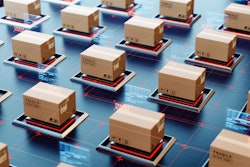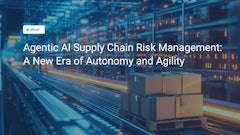
On the road to sustainable mobility, Mercedes-Benz is increasingly focusing on procurement: together with start-up Circulor, Mercedes-Benz is conducting a pilot project for transparency on CO2 emissions in the cobalt supply chain as part of STARTUP AUTOBAHN. The project partners use blockchain technology to track the emissions of climate-relevant gases as well as the amount of secondary material along the complex supply chains of battery cell manufacturers. In addition, the data network documents whether the Daimler sustainability standards are passed on throughout the entire supply chain.
With Ambition2039, Mercedes-Benz Cars aims for a carbon neutral new passenger car fleet in less than 20 years. This transformation requires detailed knowledge of all climate relevant processes associated with the entire vehicle value chain. That is why in a first step, Mercedes-Benz is creating transparency of CO2 emissions and the use of secondary material in the supply chain. In relation to this as part of STARTUP AUTOBAHN, the company has started a pilot project with a key battery cell manufacturer and Circulor, a start-up specializing in blockchain technology.
Read Next: Volvo to Use Blockchain to Trace Electric Car Batteries
The project partners first focus on cobalt, which enters the supply chain from recycling facilities. A blockchain-based system maps the production flow of the materials as well as the associated CO2 emissions. In the long term, Mercedes-Benz is pursuing the goal of a circular economy and is working to close material cycles. For this purpose, the mapping of the material flow also records the amount of recycled material in the supply chain. Furthermore, the network also displays whether Daimler's sustainability requirements in terms of working conditions, human rights, environmental protection, safety, business ethics and compliance are passed on to all companies involved. Daimler calls on its direct suppliers to comply with these standards and requirements and also carry the provisions into upstream value chains and to monitor their compliance. With the pilot project, Mercedes-Benz is driving transparency in the supply chain beyond the direct contractual partners.
"With Ambition2039, Mercedes-Benz Cars has set itself high goals. We can only get there in close cooperation with our suppliers. The key is transparency: It is our aspiration to make all processes transparent and traceable. We are the first manufacturer to use blockchain technology to map CO2 emissions in the global battery cell supply chain. In doing so, we are laying the cornerstone for effective improvements – for the environment and for our businesses," says Markus Schäfer, Member of the Board of Management of Daimler AG and Mercedes-Benz AG, responsible for Group Research and Mercedes-Benz Cars Development, Procurement and Supplier Quality.
Suppliers and partners play a key role in the implementation of the sustainability business strategy of Mercedes-Benz since they significantly contribute to value creation. The aim is to take into stronger consideration CO2 savings and the environmentally sustainable handling of resources as it pertains to procurement. In parallel with the recording of emissions data, Mercedes-Benz Cars is conducting workshops with suppliers in order to identify effective CO2 reduction measures. The focus of the commitment is initially on materials whose production is particularly CO2 intensive. In addition to battery cells, this also includes steel and aluminium. As a first milestone, Mercedes-Benz will source battery cells from carbon-neutral production for the first time as part of a sustainability partnership with a battery cell supplier.
Blockchain in the supply chain
Blockchain technology offers numerous advantages for the documentation of product and contract data. It links digital data records through encodings ("cryptography") and cannot be altered unnoticed. All participants in the supply chain are able to trace the integration, transmission and confirmation of information at any time. At the same time, confidential information remains protected. This is of particular relevance for complex and highly dynamic global supply chains, such as in battery cell production.
Mercedes-Benz builds on its experiences from previous initiatives. Already last year the automotive manufacturer commissioned the development of a blockchain prototype for the supply chain. The aim was the consistent and transparent documentation of contracts across all tiers. The insights gained are being incorporated into the new pilot project.












